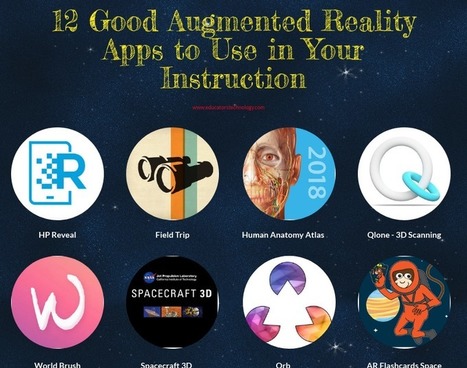"Augmented reality technologies are transforming the way we live, learn and interact with each other. They are creating limitless learning possibilities and are empowering learners with the required know-how to get immersed in meaningful learning experiences ..."
HP Reveal Field Trip Human Anatomy Atlas Qlone - 3D Scanning Solution World Brush Spacecraft 3D Orb AR Flahscards Flash Light Quiver 3D Colouring App Storyfab - AR Movie Studio Figment AR Vuforia ChalkVia Leona Ungerer



 Your new post is loading...
Your new post is loading...








